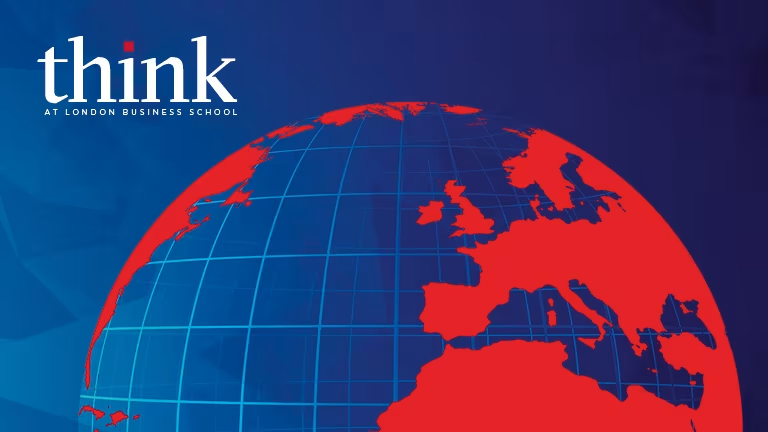
MBA
Invest in the career of a lifetime and gain a global network with our customisable two-year programme.
Discover morePlease enter a keyword and click the arrow to search the site
Or explore one of the areas below
Business schools have always been educational pioneers, but new times bring new challenges – so now they must do it all over again

Fifty-one years ago I returned from America to join the fledgling London Graduate School of Business (now London Business School), then just two years old and midway through its first MSc programme. A business school then was an American import, largely unknown in Europe. A friend, hearing that I was joining the school, wondered why I wanted to teach typing and shorthand, assuming that the school was another name for a secretarial college.
Fifty years on there are well over 100 graduate business schools in Britain alone and many more equivalents in continental Europe. An MBA, as the degree soon became, is now regarded by many, individuals and businesses alike, as the essential foundation for a career in business. It is a remarkable story and London Business School has to be complimented on keeping its place at the head of the pack.
But new times bring new challenges – and these are new times indeed. The technological revolution has only just begun to permeate our everyday life; as AI becomes ever more sophisticated, we can expect further disruptions to every system and structure. The resulting changes will elude even the most sophisticated of forecasters. Any prescription for any future will be at best a guess.
Who could reasonably have forecast the impact of the iPhone before it sprang on the world? Heraclitus was right when he said two and a half millennia ago that all is flux. “You cannot step into the same river twice,” he famously declared. He was right then. He is right now. No part of our future is certain.
Add the political disruption in many countries and the future is one of multiple possible scenarios, many of which cannot be foreseen. Uncertainty brings opportunity, of course, as well as danger, and we need to prepare for it. And educating for it requires a radical departure from the mindset that has traditionally characterised our educational institutions, including business schools.
Implicit in their current approach is the idea that the past is the most appropriate model of the future. Study the past, even the most recent past, identify what is useful in it and what is misconceived, package it excitingly and teach it as the best way forward. There are, of course, lessons to be learnt from history – usually cautionary tales of past mistakes – but the new challenge is not the known things, or even the known unknowns, but the unknown unknowns.
Business schools have always been educational pioneers. Simulations, case studies and live projects were first tried and tested there before slowly infiltrating the rest of the educational world. Their opportunity, and challenge, is now to do the same thing again; to lead a seismic change in educational design. In their own sphere business schools must change radically or risk losing their influence. If they do not change they will soon be seen as out of touch, irrelevant and over- priced.
Already some employers are bypassing them, going straight to university and even school leavers, believing that if they can identify the right characters, they can develop them better in their own environment, with some help from online courses, than in the classrooms of the schools. That is the sound of the canary in the coalmines.

Invest in the career of a lifetime and gain a global network with our customisable two-year programme.
Discover more
Think at London Business School: fresh ideas and opinions from LBS faculty and other experts direct to your inbox
Sign up